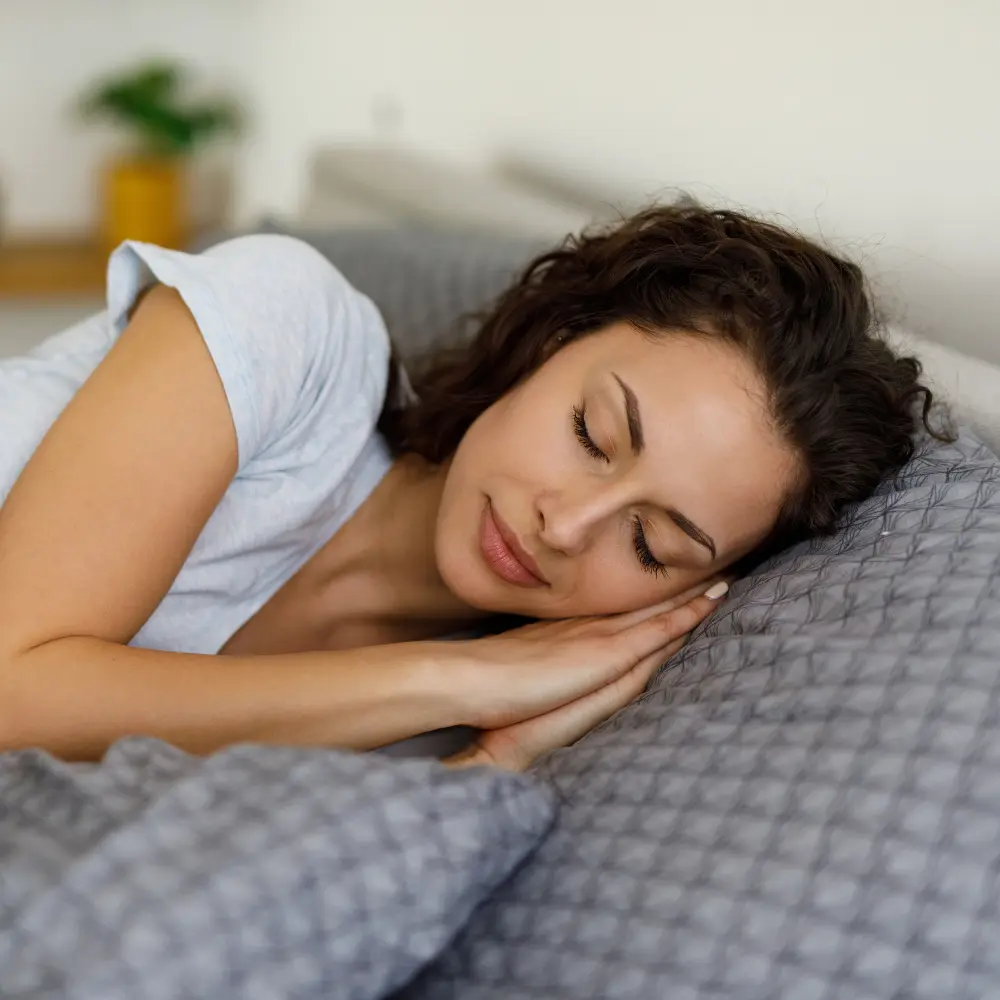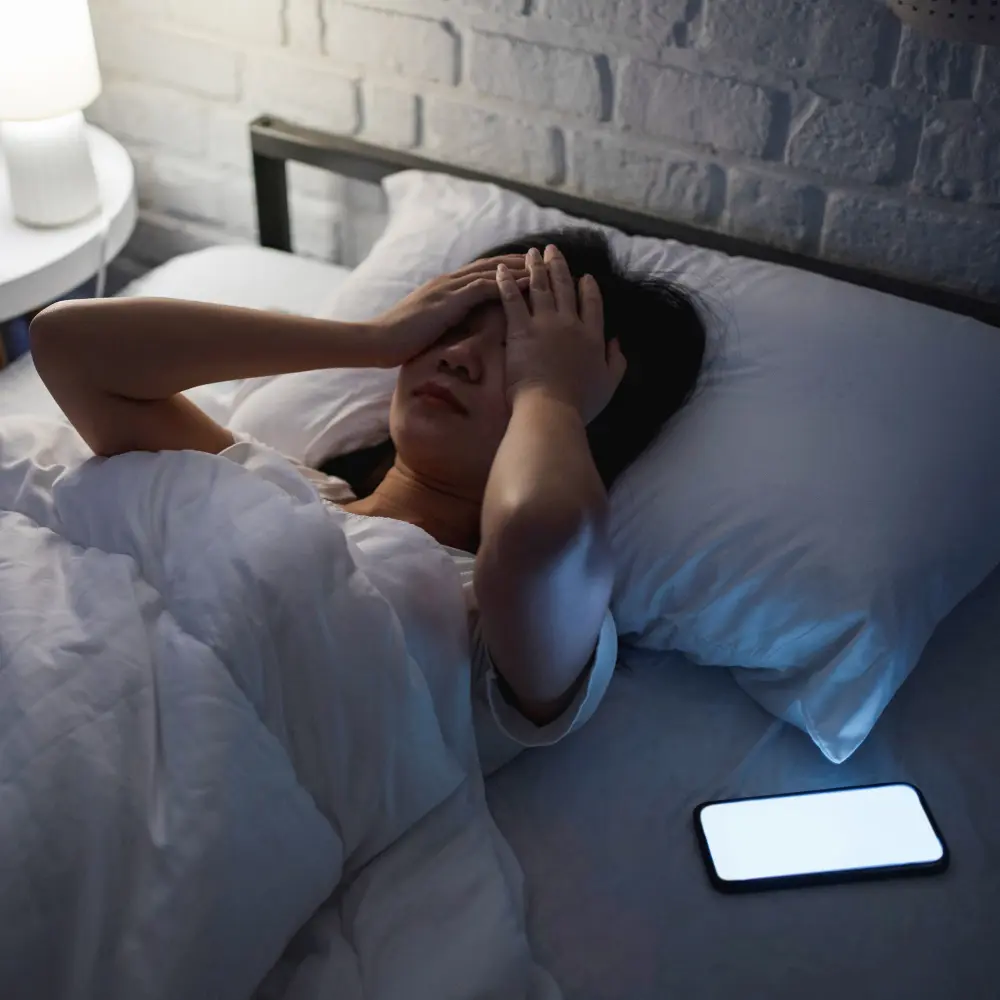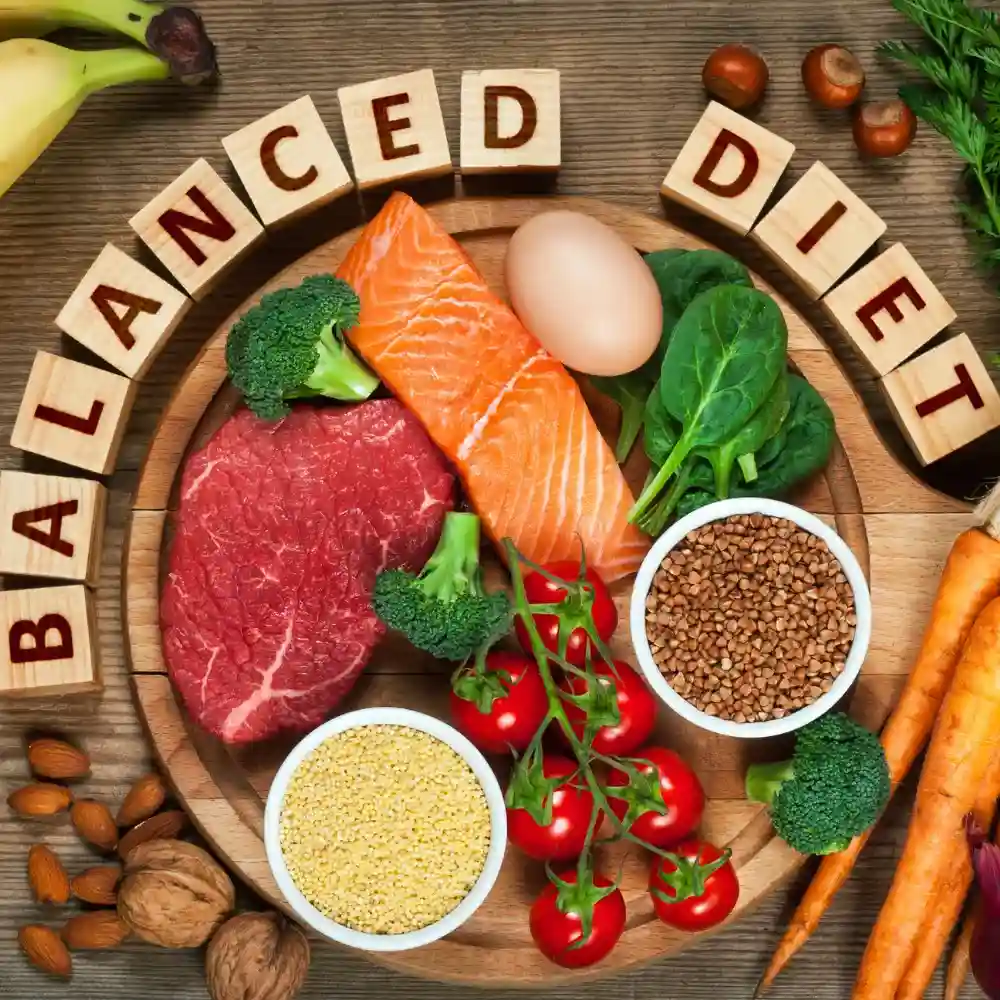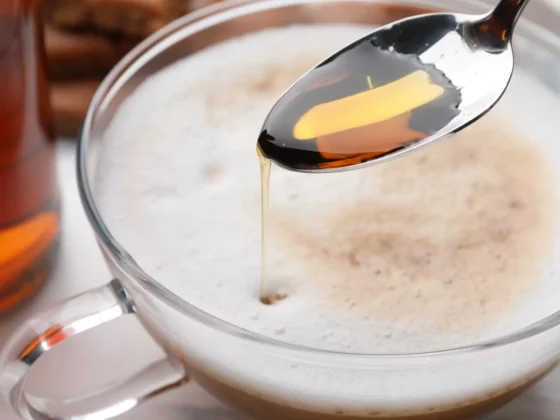Many of us start our mornings with a cup of coffee, relying on its caffeine content to jumpstart our day. But what about decaf coffee? A question often posed is, “Does Decaf Coffee Give You Energy?” Through this article, we aim to debunk the myth surrounding decaffeinated coffee’s energizing effects and explore the science behind it.
We will delve into understanding how decaf is made and investigate whether it holds the potential to energize you, just like its caffeinated counterpart. This comprehensive exploration will provide clarity on the role of this lovely beverage in your daily energy levels and help you make informed decisions about your coffee consumption. Let’s brew some knowledge and serve it hot!
Decaf Coffee and Energy: Key Takeaway
- Understanding Caffeine Content: This drink does contain some caffeine, albeit in much lower quantities compared to regular coffee. This lower caffeine content can result in a mild energy boost, particularly for those sensitive to caffeine.
- The Decaffeination Process: The process of how decaf is made involves selectively removing caffeine from coffee beans, with an aim to preserve the coffee’s flavors and aromas. This process results in a beverage that can be enjoyed without the typical caffeine-induced energy surge.
- Healthful Benefits of Decaf: Despite the lower caffeine content, decaffeinated coffee retains many of the health benefits of regular coffee. It is rich in antioxidants and may be associated with lower risks of certain diseases, making it a beneficial part of a healthy diet.
- Decaf and Hydration: Contrary to popular belief, this beverage does not cause dehydration. In fact, like regular coffee, it contributes to your daily fluid intake and helps maintain hydration.
- Decaf as Part of a Balanced Energy Strategy: While this drink might not provide the same level of energy boost as regular coffee, it can be part of a balanced energy strategy. Good sleep habits, regular physical activity, and a balanced diet can all contribute to maintaining high energy levels without relying on stimulants.
Understanding Caffeine and Its Effects on the Body
Caffeine, a naturally occurring stimulant found in various food products like coffee, tea, and chocolate, has a profound impact on our bodies. It is absorbed quickly into the bloodstream, typically peaking within one hour of consumption, and affects several systems within the body, including the central nervous system and cardiovascular system.
How Does Caffeine Affect Energy Levels?

Caffeine’s primary influence on the body is its stimulatory effect on energy levels. This is accomplished by its interaction with a certain kind of neurotransmitter in the brain.
- Central Nervous System Stimulation: Once absorbed into the bloodstream, caffeine can easily cross the blood-brain barrier. Once inside the brain, it primarily interferes with the functioning of adenosine, a neurotransmitter that promotes sleep and relaxation. By blocking the adenosine receptors, caffeine prevents this neurotransmitter from carrying out its normal functions, thereby keeping us alert and enhancing our cognitive performance.
- Increased Metabolism: Caffeine may slightly increase metabolism, thereby giving the body a sense of increased energy. However, this effect tends to diminish with regular caffeine use as the body develops a tolerance.
- Enhanced Physical Performance: Caffeine has also been found to enhance physical performance in some people. It does this by stimulating the release of dopamine, another neurotransmitter that contributes to feelings of pleasure and motivation.
The Role of Adenosine Receptors and Caffeine

As discussed, caffeine’s main mechanism of action revolves around its ability to block adenosine receptors in the brain. Adenosine is a substance in your body that promotes sleepiness. It accumulates in the brain during your waking hours, gradually slowing down brain activity and promoting the onset of sleep.
- Adenosine Blocking: Caffeine mimics the structure of adenosine and binds to adenosine receptors without activating them, effectively blocking adenosine from performing its function. This causes an increase in neuronal firing and the release of other neurotransmitters like dopamine and norepinephrine, promoting wakefulness and alertness.
- Neurotransmitter Release: With the inhibition of adenosine, caffeine allows the brain’s natural stimulants, dopamine, and glutamate, to have a more prominent effect. This leads to heightened alertness and increased focus commonly associated with caffeine consumption.
- Counteraction of Sleepiness: As a result of blocking the adenosine receptors, caffeine also prevents the slowing down of neural activity, counteracting feelings of fatigue or sleepiness.
Why Decaf Coffee Contains Less Caffeine

Decaf, or decaffeinated coffee, is coffee from which most of the caffeine has been removed. So, how is decaf made? It involves a process where unroasted (green) coffee beans are soaked in water to dissolve the caffeine. (1) The water is then typically treated with a solvent that binds to caffeine molecules and removes them from the water. Finally, the beans are returned to the water to reabsorb the flavors and oils that were initially lost. This process generally reduces the caffeine content to between 0-3% of the original amount.
- Reduced Caffeine Content: The primary benefit of decaffeinated coffee is its significantly reduced caffeine content, making it a suitable option for individuals who are sensitive to caffeine or have specific health conditions that require a low-caffeine diet.
- Impact on Energy Levels: While the caffeine content is significantly lower, it’s worth noting that this beverage still contains a small amount of caffeine. As a result, decaf can give you a bit of energy, but the effect is significantly less than regular coffee.
- Health Considerations: Some people may opt for decaf to reduce their caffeine intake for various reasons, such as pregnancy, heart conditions, or anxiety disorders. Furthermore, some may simply prefer decaf to avoid the common side effects of caffeine, such as restlessness, insomnia, or an upset stomach.
Understanding the effects of caffeine and its interaction with our bodies can help us make more informed decisions about our caffeine consumption, whether we prefer a daily espresso shot or a cup of decaf.
Debunking the Myth: Decaf Coffee and Energy Boost
Decaffeinated coffee, commonly known as decaf, is often misunderstood. Many believe that it offers no energy-boosting benefits, while others assume it has absolutely no caffeine. Let’s debunk these myths and delve into the details of this beverage’s true impact on energy and sleep.
The Caffeine Content in Decaf Coffee
Contrary to popular belief, this drink is not entirely caffeine-free. The decaffeination process removes about 97% of the caffeine, but it’s not possible to eliminate it completely.
- Decaf vs. Regular Coffee: A standard 8-ounce cup of decaffeinated cup of joe contains around 2-15 milligrams of caffeine, compared to a regular cup of coffee, which can range from 95 to 140 milligrams of caffeine. Thus, while the caffeine content is significantly reduced, it’s not completely absent.
- Individual Sensitivity: The effect of this small amount of caffeine can vary depending on an individual’s sensitivity to caffeine. Some people may feel a slight energy boost, while others may not experience any noticeable change in their energy levels.
- Caffeine’s Effect on the Body: Despite the low levels, the caffeine in decaf can still stimulate the central nervous system to a certain degree, potentially leading to a slight increase in alertness and reduction in fatigue.
Decaf Coffee and Its Impact on Sleep

While decaf coffee is significantly lower in caffeine compared to regular coffee, its impact on sleep can vary based on numerous factors.
- Sleep Quality: For individuals sensitive to caffeine, consuming this beverage later in the day might potentially impact their sleep quality, given the small amount of caffeine it still contains. However, this impact is likely to be much less severe than with regular coffee.
- Caffeine Sensitivity: The effect of this drink on sleep depends greatly on an individual’s sensitivity to caffeine. People with high caffeine sensitivity might experience disrupted sleep patterns, even with the small amount present in decaffeinated coffee.
- Time of Consumption: The timing of coffee consumption also plays a role in sleep quality. Drinking this beverage closer to bedtime could potentially interfere with sleep due to its residual caffeine content, though the risk is significantly less compared to regular coffee.
Other Factors Influencing Energy Levels

While caffeine is a well-known stimulant, other factors associated with coffee consumption can also influence our energy levels.
- Psychological Effects: The ritual of drinking coffee, regardless of whether it’s regular or decaf, can trigger a placebo effect. This psychological response can make us feel more awake and alert, even without a significant dose of caffeine.
- Hydration: Proper hydration is essential for maintaining energy levels. Coffee, including decaf, contributes to your daily fluid intake, which can help prevent dehydration—a common cause of fatigue.
- Nutrients in Coffee: Coffee is a source of several nutrients, including B vitamins, manganese, and potassium. These nutrients can contribute to overall health and vitality, potentially influencing energy levels.
While this drink contains less caffeine and may not provide the same energy boost as regular coffee, it’s not completely devoid of caffeine. It can subtly impact energy levels and sleep, depending on individual sensitivity and the timing of consumption. Other factors, such as the psychological effect of drinking coffee and its nutrient content, can also play a role in influencing energy levels.
The Science Behind Decaf Coffee
Decaffeinated coffee is an excellent alternative for coffee lovers who wish to reduce their caffeine intake. However, the decaffeination process and the nutritional benefits of decaf coffee are less well-known. Let’s explore the science behind this delectable drink.
Decaffeination Methods: How is Caffeine Removed?

The goal of the decaffeination process is to selectively remove caffeine while preserving the other flavor and aroma compounds in the coffee beans. There are several methods, but all start with green, unroasted coffee beans and use water to extract caffeine.
- Direct Solvent Method: The beans are first soaked in water and then rinsed with a chemical solvent, such as ethyl acetate or methylene chloride, which binds to the caffeine molecules. The beans are then heated to evaporate the solvent and caffeine. This process is usually repeated until 97-99% of the caffeine is removed.
- Swiss Water Process: Prior to the decaffeination process, the green coffee undergoes rehydration to achieve the desired moisture level for effective removal of caffeine. This stage also serves to eliminate impurities such as dirt, dust, and silverskin. Subsequently, a specialized carbon filter system is employed to extract the caffeine, after which the carbon is subjected to a regeneration furnace to eliminate the caffeine content, allowing for its reuse. Throughout this procedure, the green coffee extract undergoes a continual process of rejuvenation and renewal.
The Nutritional Composition of Decaf Coffee

This beverage is very similar to regular coffee in terms of nutritional composition. Both contain small amounts of vitamins and minerals and are virtually calorie-free when consumed black.
- Micronutrients: Both regular and decaf coffee contain trace amounts of several vitamins and minerals, including B vitamins, potassium, and magnesium. However, these are typically present in small amounts and are not a significant source of these nutrients in a balanced diet.
- Calorie Content: Both types of coffee are virtually calorie-free when consumed black. The caloric value of a cup of coffee depends primarily on any added milk, cream, or sugar.
- Caffeine: The key difference between regular and decaf coffee is the caffeine content. As mentioned before, decaffeinated coffee typically contains about 2-15 mg of caffeine per 8 oz cup, compared to 95-140 mg in the same serving size as regular coffee.
Antioxidants and Health Benefits in Decaf Coffee
Despite the reduction in caffeine, this drink still offers many of the health benefits associated with regular coffee due to its antioxidant content.
- Antioxidant Content: This beverage is rich in antioxidants, including hydrocinnamic acids and polyphenols, which can help neutralize harmful free radicals in the body.
- Health Benefits: The antioxidants in this drink have been linked to several health benefits, including a reduced risk of developing type 2 diabetes, certain types of cancer, and neurological diseases like Parkinson’s and Alzheimer’s. It’s important to note that while decaffeinated coffee can contribute to a healthy diet, it should not replace a balanced, nutrient-rich diet and lifestyle.
This delightful drink offers a viable alternative for those looking to reduce their caffeine intake while still enjoying a warm cup of coffee. Through various decaffeination processes, coffee producers can provide a product that maintains the classic taste and aroma of coffee, along with many of its health benefits.
Alternative Ways to Boost Energy
While many people rely on caffeine for an energy boost, it’s not the only way to increase your energy levels. In fact, other strategies can provide more sustainable and healthful energy throughout the day. Here are some alternative methods to enhance your energy levels without reaching for a cup of caffeinated coffee.
Optimal Sleep Habits for Energy

Maintaining good sleep habits is one of the most effective ways to ensure you have energy during the day. High-quality, restful sleep recharges the body and mind, setting you up for an energetic and productive day.
- Regular Sleep Schedule: Attempt to maintain a consistent sleep schedule by going to bed and waking up at the identical time each day, including weekends. This regularity aids in the synchronization of your body’s internal rhythm and facilitates the process of falling asleep and staying asleep throughout the night.
- Quality Sleep Environment: Make sure your bedroom is quiet, dark, and at a comfortable temperature. A comfortable mattress and pillow can significantly improve the quality of your sleep.
- Avoid Screens Before Bed: The light emanating from smartphones, tablets, laptops, and televisions has the potential to disrupt your sleep. Make an effort to power down these gadgets at least sixty minutes prior to your intended sleep time.
Exercise and Its Energizing Effects

Regular physical activity is a powerful energy booster. Even a small amount of movement can make a difference, particularly if you’re experiencing a mid-afternoon energy slump.
- Consistent Exercise: A regular exercise routine, which could include activities like walking, running, cycling, or swimming, helps to improve cardiovascular health and increase overall energy levels.
- Short Activity Breaks: Taking short breaks for mild physical activity, like walking or stretching, can help maintain energy levels throughout the day, particularly during work hours.
- Yoga and Mind-Body Exercises: Practices like yoga and tai chi combine physical activity with stress reduction, mindfulness, and breathing techniques, all of which can enhance energy levels.
Dietary Strategies for Sustainable Energy

What you eat plays a significant role in your energy levels. Certain foods provide sustained energy, while others can lead to energy spikes and crashes. Here are some dietary strategies for maintaining consistent energy throughout the day.
- Eat a Balanced Diet: Consuming a diet that’s high in fruits, vegetables, lean proteins, and whole grains can provide a steady supply of energy throughout the day.
- Stay Hydrated: Feelings of fatigue can arise from dehydration. It is essential to maintain a sufficient intake of fluids throughout the day, encompassing water, herbal teas, or beverages with low sugar content.
- Mindful Snacking: Opt for snacks that combine protein, fat, and fiber for sustained energy. Good options include nuts, yogurt with fruit, or a slice of whole-grain toast with avocado.
While caffeine can give you an immediate energy boost, sustainable energy levels are best achieved through good sleep habits, regular physical activity, and a balanced diet. These strategies can help you maintain high energy levels throughout the day without relying on stimulants.
Debunking Common Myths About Decaf Coffee

This delectable beverage often lives in the shadow of its caffeine-rich counterpart, surrounded by various misconceptions and myths. Some people claim it causes dehydration, while others argue that it can disrupt digestion or hydration. Let’s delve into the facts and debunk these common myths about decaffeinated coffee.
Decaf Coffee and Dehydration
One common myth is that this beverage, like regular coffee, can lead to dehydration. This myth stems from the diuretic effects of caffeine, which increases urine production and potential fluid loss.
- Caffeine and Diuresis: While caffeine has a diuretic effect, leading to increased urine production, this effect is usually mild and temporary. Furthermore, the caffeine content in this drink is significantly lower than in regular coffee, making its potential for causing dehydration minimal.
- Research Findings: Research has found that moderate consumption of caffeinated and decaffeinated beverages does not cause significant dehydration.
- Fluid Intake: Both regular and decaf coffee are primarily composed of water, meaning they can contribute to your daily fluid intake. Thus, in moderate amounts, decaf coffee can help you stay hydrated.
- Balanced Fluid Consumption: It’s essential to balance coffee consumption with the intake of other hydrating beverages, like water or herbal tea, to ensure optimal hydration levels.
Decaf Coffee and Digestive Health
Another myth that often circulates is that this beverage is harmful to digestive health. However, much like its effects on hydration, the effects of decaf coffee on digestion are often misunderstood.
- Coffee and Gastric Secretion: Both regular and decaf coffee stimulate the production of gastrin, a hormone that promotes the secretion of gastric acid. This could potentially aggravate conditions like acid reflux or gastritis, but it does not impact healthy individuals’ digestion negatively.
- Coffee and Gut Motility: Coffee can stimulate gut motility, potentially leading to a laxative effect. This is due to compounds present in coffee, not caffeine itself, and thus this effect is observed with both regular and decaf varieties.
While this beverage can slightly stimulate urine production and gastric acid secretion, its overall impact on hydration and digestive health is minimal for most individuals. Like most things, it’s best consumed in moderation as part of a balanced diet. It’s always a good idea to listen to your body and adjust your diet based on your individual needs and responses.
Best Decaf Coffee Brands
When it comes to enjoying a great cup of coffee without caffeine, several brands stand out in terms of quality and flavor. Here, we focus on some of the best decaf coffee brands, providing detailed information on their offerings and why they’re worth your consideration.
Kicking Horse Decaf Coffee

Kicking Horse’s Dark Roast Decaf whole bean coffee presents a bold flavor profile, underscored by the invigorating aroma of roasted hazelnuts, and a full-bodied, chocolatey texture. Each sip leaves behind a satisfying and lingering aftertaste, making this Swiss water-processed decaf a delight to the senses.
Coffee Highlights:
- The beans used in Kicking Horse’s decaf come from Central and South America, ensuring not just the highest quality but also ethical sourcing. The farmers cultivating these beans practice sustainable methods, reinforcing their commitment to the environment.
- Kicking Horse’s decaf is more than just a richly flavored brew. It’s organic, Fair trade, and kosher. Their shade-grown Arabica beans create a blend that aligns with their promise of offering coffee that respects the planet and the people who farm it.
- Nestled in the Canadian Rocky Mountains, Kicking Horse’s roasting process imparts deep, unique flavors to their coffee, attributing to the unforgettable experience each cup offers.
- Fair trade and organic certifications represent their commitment to both quality and ethical principles. Kicking Horse recognizes the importance of supporting farmers and caring for the environment while delivering a delectable coffee experience.
Blue Bottle Night Light Decaf Coffee
Blue Bottle’s Night Light Decaf is a darker blend that pleases the palate with its creamy and malty sweetness. Free of any harshness, this brand offers a smooth, satisfying experience that can be enjoyed at any time of the day, making it a true coffee lover’s delight.
Coffee Highlights:
- The flavor profile of Night Light Decaf encompasses crème brûlée, vanilla, and key lime. This unique combination contributes to its floral and fruity dark chocolate flavor that complements its light roast level.
- Blue Bottle Coffee uses the Swiss Water Process for decaffeinating Night Light Decaf. This method is chemical-free and results in a blend that retains the beans’ inherent sweetness without acquiring any burnt characteristics.
- The company’s small-batch roasting approach ensures that their coffee maintains a consistent flavor, whether you’re savoring it in Tokyo or New York. Their dedication to continuous improvement resonates in the quality of their coffee.
- Regardless of the brewing method – espresso or French press – Night Light Decaf promises a rich and satisfying experience. Its boldness pairs perfectly with steamed milk, making it a versatile addition to any coffee routine.
Organic Ethiopia Decaf Coffee

For coffee lovers who appreciate a cup full of vibrant flavors, the Organic Ethiopia Decaf from Cooper’s Cask Coffee is an ideal choice. The unique combination of chocolate orange, sweet lemon, and black tea hints in this medium roast offers a delightful tasting experience, all while being caffeine-free.
Coffee Highlights:
- The Swiss Water Process employed ensures that the caffeine is eliminated, but the unique and vibrant flavors associated with Ethiopian beans remain intact.
- Cooper’s Cask Coffee is known for their small batch roasting process. This attention to detail preserves the freshness and guarantees the authentic taste of each cup.
- The Organic Ethiopia Decaf stands out for its tantalizing aromas and diverse flavor profile. Every sip offers a smooth taste, with a citrusy sweetness that enhances the overall coffee experience.
- Not only does this beverage offer an impressive flavor, but its origin and processing method are also a testament to Cooper’s Cask Coffee’s dedication to quality and sustainability.
Each of these brands consistently delivers on the promise of the best decaf coffee, proving that you don’t need caffeine to enjoy a rich, satisfying cup of coffee. Whether you prefer a darker roast or a blend with a more vibrant flavor profile, these brands have something to suit every preference.
Conclusion
In conclusion, the question, “Does Decaf Coffee Give You Energy?” is more nuanced than a simple yes or no. This lovely drink, despite its lower caffeine content resulting from the specific process of how decaf is made, does contain a small amount of caffeine that can give a minor energy boost. However, the primary role of decaf in your daily routine is likely to be one of enjoyment and relaxation, rather than as an energy enhancer.
This delectable beverage can certainly be a part of a healthy lifestyle, providing numerous benefits without the jittery effects of caffeine. Remember, the key to maintaining high energy levels isn’t found solely in your coffee cup, but in a balanced lifestyle that includes good sleep, regular exercise, and a nutritious diet.
FAQ
Can decaf coffee help with relaxation?
Yes, due to its lower caffeine content, this beverage can be a relaxing alternative to regular coffee.
Does decaf coffee affect sleep quality?
This drink, with its lower caffeine content, is less likely to interfere with sleep compared to caffeinated coffee.
Are there any health benefits to drinking decaf coffee?
Yes, decaffeinated coffee is rich in antioxidants and can contribute to a reduced risk of certain diseases.
Can decaf coffee be part of a healthy energy-boosting routine?
Yes, this beverage can contribute to a balanced energy strategy, especially when paired with good sleep, regular exercise, and a balanced diet.
















